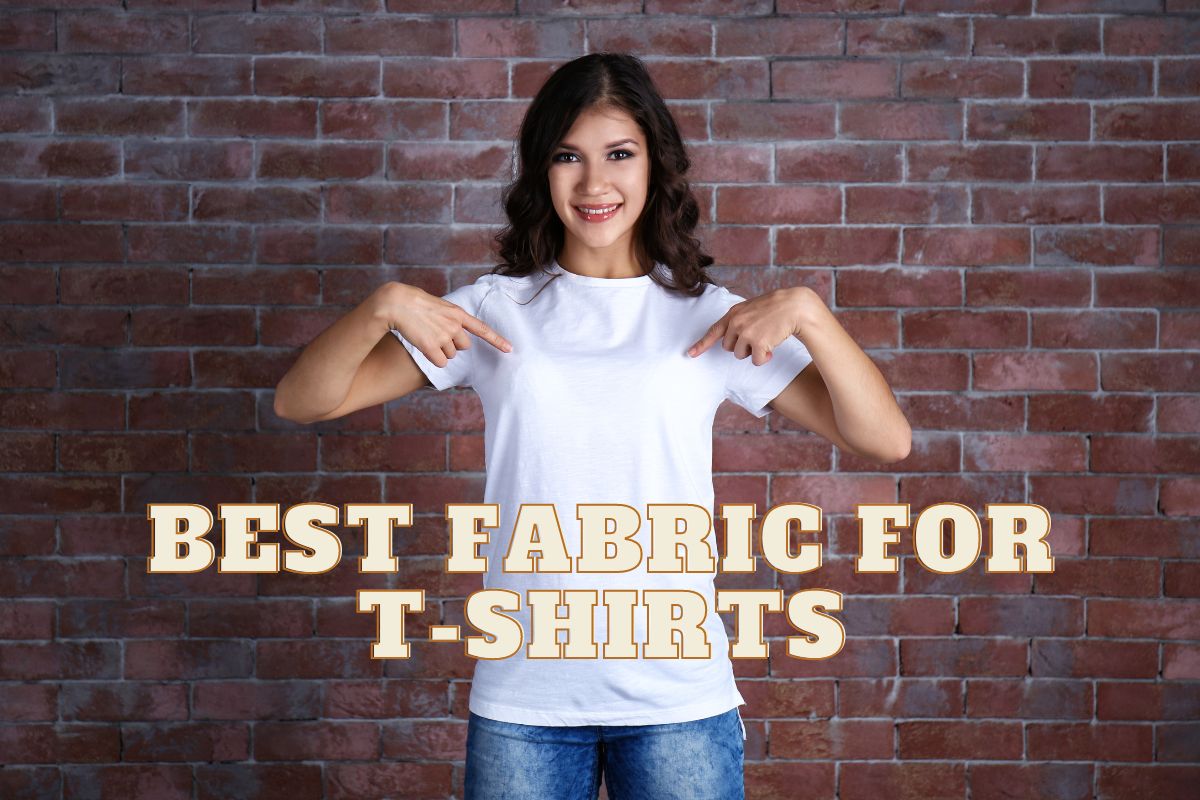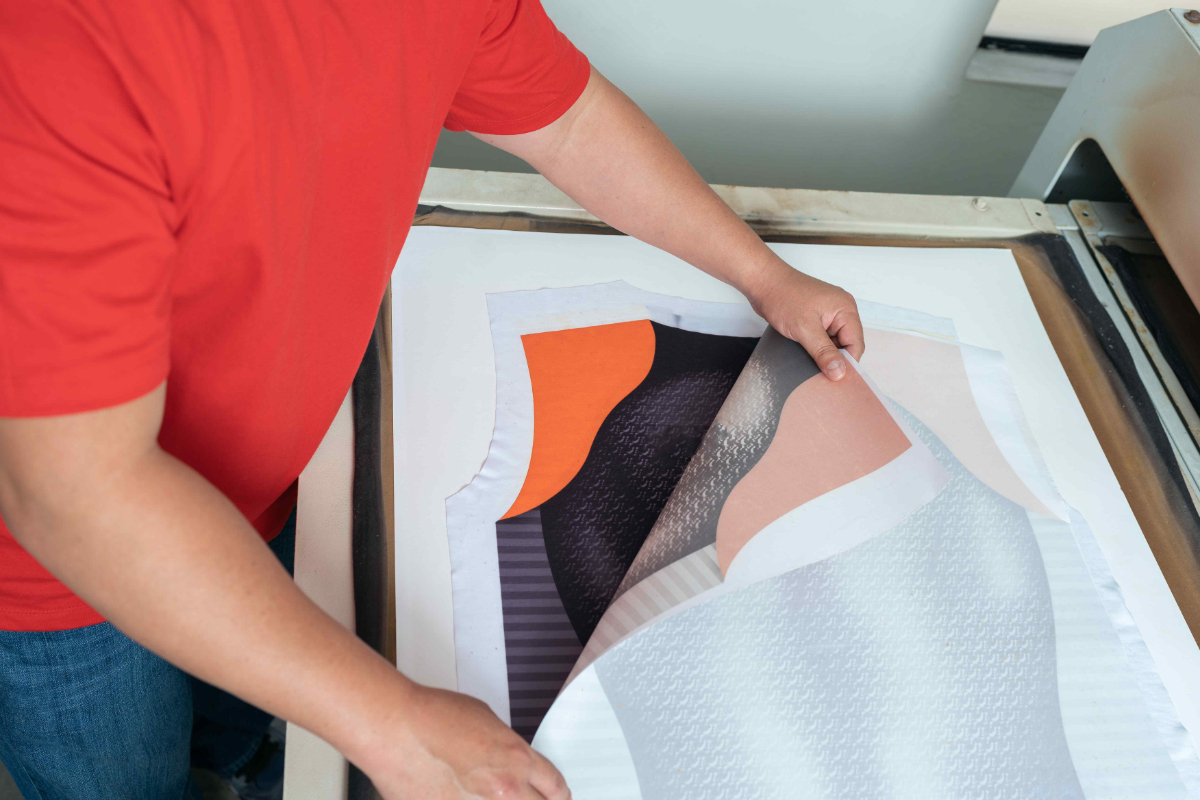When choosing the best fabric for your t-shirts, it’s essential to consider factors like breathability, durability, and comfort. These characteristics are greatly influenced by the type of material used. Cotton is a classic choice known for its softness and natural breathability, making it comfortable for everyday wear. However, if you’re looking for a more performance-oriented t-shirt, especially for exercising in hot environments, you might opt for synthetic fibers or blends that offer moisture-wicking properties to help keep you dry.
There are also innovative textiles that combine fibers or incorporate advanced technology to enhance the functionality of your t-shirt. Fabrics with integrated micro-computer chips or those that surpass traditional textile limits can significantly alter how you interact with your clothing, potentially impacting wellness and how you perceive “medical” textiles. Beyond the material itself, the construction of the fabric, such as the fineness of the yarn and the design, also plays a crucial role in the long-term quality and perception of sports t-shirts.
Fundamentals of T-Shirt Fabrics
When selecting a T-shirt, you’ll want to consider factors such as comfort, durability, and suitability for the climate you live in. Fabric type is crucial as it determines the texture, breathability, and longevity of your T-shirt.
Understanding Fabric Types
You’ll encounter both natural and synthetic fabrics when shopping for T-shirts. Natural fabrics include cotton, known for its breathability and softness, making it a top choice for comfort. Synthetic fabrics such as polyester and rayon are praised for their durability and color retention. Each fabric presents a unique blend of comfort, durability, and care requirements.
Identifying Fabric Weaves
The two primary fabric weaves you’ll find in T-shirts are knitted and woven. Jersey is a type of knitted fabric typically used for T-shirts, and it is appreciated for its stretch and softness. The yield of the fabric is determined by the yarn count and fabric weight, which directly influence the quality and feel of the T-shirt.
Assessing Fabric Quality
High-quality T-shirts often have a high yarn count and an optimal fabric weight to balance durability and comfort. The feel of the fabric, which can indicate its softness and comfort, is a direct result of the materials used and the fabric construction techniques employed.
Evaluating Environmental Impact
Sustainability is becoming an increasingly important consideration. Choose eco-friendly options like organic cotton or other biodegradable materials to minimize your environmental footprint. Assess the sustainability practices of brands to ensure they align with eco-conscious principles.
Considering Fabric for Different Climates
Your climate is crucial in choosing the right fabric. In warm weather, breathable and moisture-wicking fabrics like cotton keep you cool and dry. For cold weather, opt for denser knits and blends to maintain warmth. Fabrics also behave differently in varied climates; for instance, rayon can feel cool and pleasant in a humid environment.
By keeping these fundamentals in mind, you’ll be able to choose the T-shirt that best meets your needs in terms of comfort, style, and ethical production.
Materials and Blends
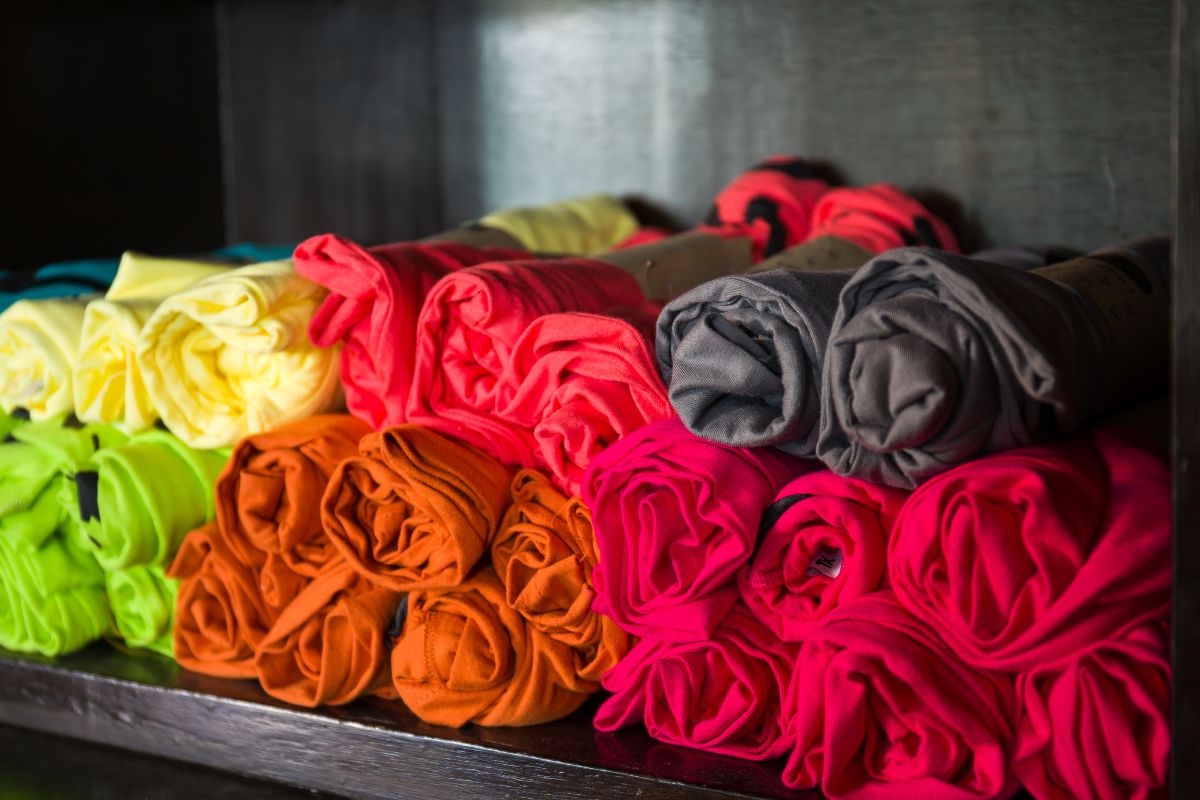
When selecting the perfect t-shirt, the materials and the type of blend impact softness, breathability, and moisture management. Your choice depends on personal preference, intended use, and environmental concerns.
Cotton Varieties
100% Cotton:
- Regular Cotton: Economical and widely used, offering moderate softness and breathability.
- Combed Cotton: Fine brushes remove short strands, resulting in a smoother, stronger fabric.
- Ringspun Cotton: Twisting and thinning cotton strands create a fine rope of cotton fibers, enhancing softness.
- Pima/Egyptian Cotton: Known for their long fibers, yielding durable and exceptionally soft t-shirts.
Blended Fabric Advantages
Blends combine the best qualities of different fibers, often enhancing stretch and moisture management.
- Poly-Cotton Blend: Balances the breathability of cotton with the durability of polyester.
- Tri-Blend: A mix of cotton, polyester, and rayon, creating a soft texture.
- Cotton/Spandex: Adds elasticity, perfect for form-fitting shirts.
Synthetics and Performance Fabrics
These are designed for active lifestyles, offering moisture-wicking properties and excellent durability.
- Polyester: Lightweight and durable, commonly used in athletic apparel.
- Spandex: Known for its superior elasticity, often blended into activewear for added flexibility.
Natural and Sustainable Options
For eco-conscious buyers, these natural fibers provide eco-friendly clothing choices.
- Bamboo: Offers natural softness and moisture absorption.
- Hemp: Durable and biodegradable, with excellent breathability.
- Linen: Made from the flax plant, linen is strong and naturally biodegradable.
- Merino Wool: A fine wool type, hypoallergenic and temperature regulating.
Specialty Fabrics
Some fabrics offer unique properties that make your t-shirts stand out.
- Silk: Delivers an unparalleled silky feel, often considered one of the softest fabrics for t-shirts.
- Wool: Temperature-regulating and moisture-absorbent.
T-Shirt Design Considerations
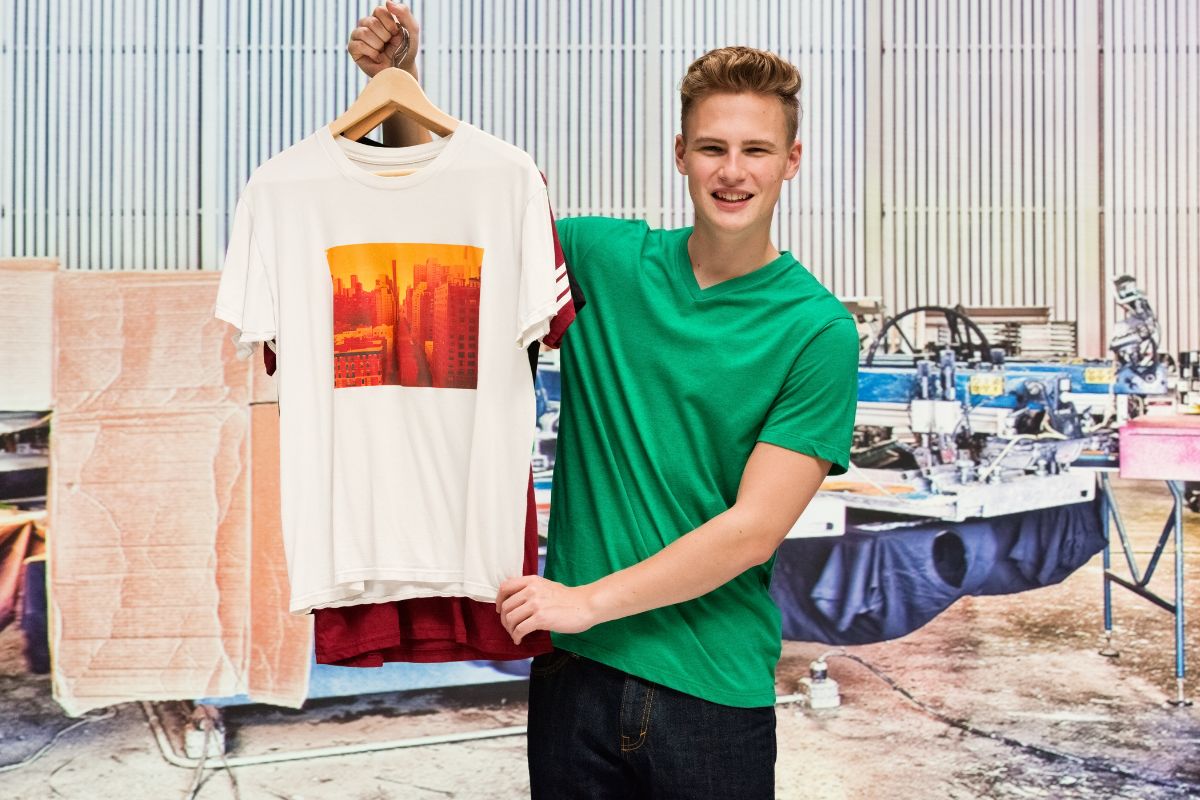
When selecting a t-shirt, whether for personal use or custom designs, consider aspects such as fit, style, decoration methods, and fabric care to ensure long-lasting comfort and appearance.
Fit and Comfort
Your t-shirt should provide a balanced fit that offers enough room for movement without being overly baggy. Comfort is paramount, with flexibility in the fabric allowing for ease of motion. Fabrics like slub cotton not only provide a comfortable feel but also add a textured look to the garment.
Style and Appearance
T-shirts come in various styles, and the right choice can profoundly impact your look. Versatility is key, and a well-chosen t-shirt can be worn in multiple settings. Consider a t-shirt design that aligns with current trends or opt for a timeless style to ensure your t-shirt remains a go-to piece in your wardrobe.
Printing and Embellishment
Custom t-shirt designs often include t-shirt printing techniques like screen printing. When designing your t-shirt, ensure the printing method used is compatible with the fabric to prevent issues like dye migration or print imperfection. Pay attention to detail in the sewing and embellishment phases to enhance the overall quality.
Care and Maintenance
To preserve the integrity and appearance of your t-shirt, pay attention to the care instructions. Choose materials that are wrinkle-resistant or anti-wrinkle to minimize the need for ironing. Be aware of the fabric’s predisposition to shrinking, and follow washing guidelines to maintain the shape and size of your garment.
Practical Aspects
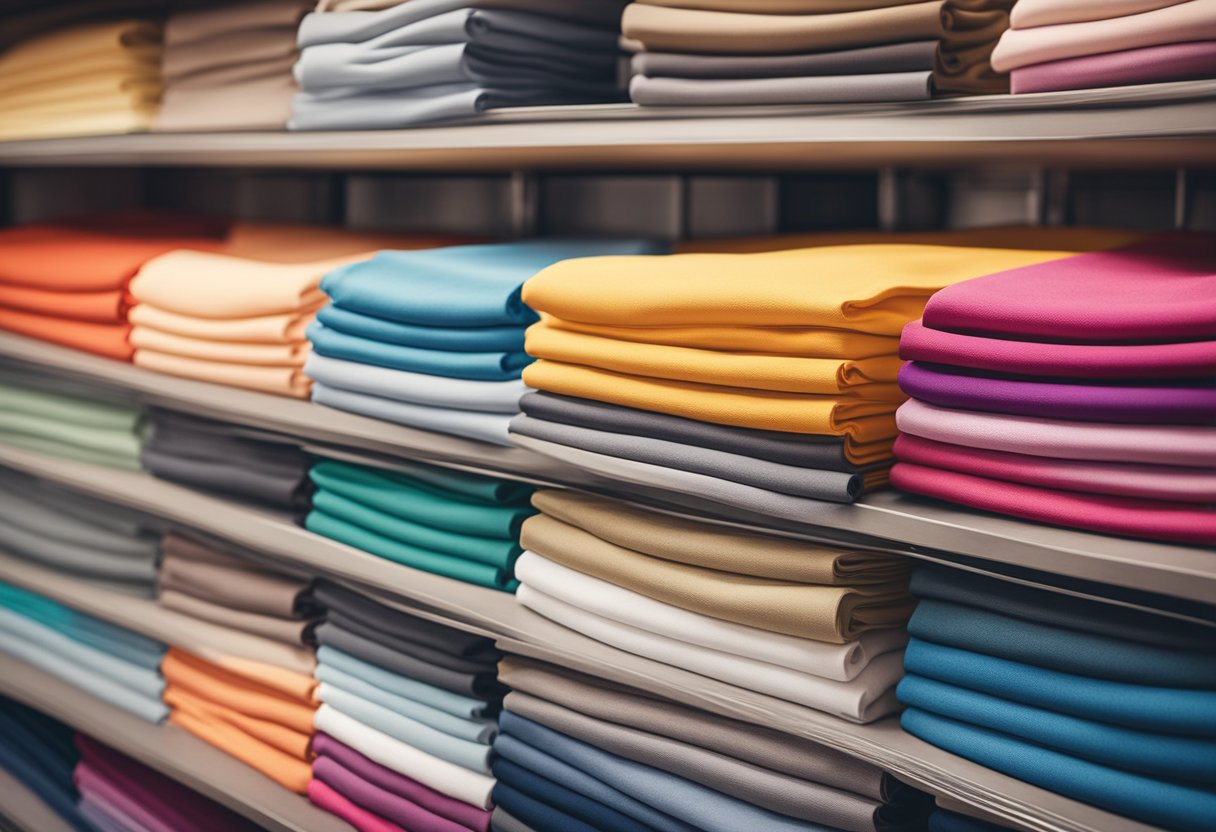
When selecting the best fabric for your t-shirt, it’s essential to consider cost and affordability, durability and longevity, and breathability and weight to ensure you get value for your money in terms of comfort and fabric performance.
Cost and Affordability
Your budget is a primary concern when choosing t-shirt fabric. Cotton is typically cost-effective and widely available, making it a popular choice for both consumers and t-shirt manufacturers. On the other hand, synthetic fibers such as polyester might offer moisture-wicking properties but can be more expensive. It’s crucial to weigh the pros and cons of each fabric type against their cost.
- Cotton: Affordable and familiar
- Polyester: Higher cost, but with performance benefits
Durability and Longevity
The durability of your t-shirt is determined by the fabric’s ability to maintain shape, strength, and color retention over time. For example, a blend of cotton and polyester can offer the best of both worlds: comfort and enhanced durability. Thicker fabric weights typically offer greater longevity but may not be as lightweight or breathable as desired.
- Cotton-Polyester Blends: Good color retention and strength
- 100% Cotton: Softer feel but may show wear sooner
Breathability and Weight
For comfort, especially in warmer climates, breathability is crucial. Lighter fabric weights provide better airflow, but the trade-off might be less durability. Natural fibers like cotton are highly breathable, while synthetic ones often come with moisture-wicking properties that pull sweat away from the skin, a plus for athletic wear.
- Light Fabrics (< 150 GSM): High breathability, ideal for heat
- Heavier Fabrics (> 200 GSM): More substantial feel, less airflow
When you are in the market for new t-shirts, keep these practical aspects in mind to find the ideal balance of cost, durability, and comfort that suits your needs.
Additional Properties
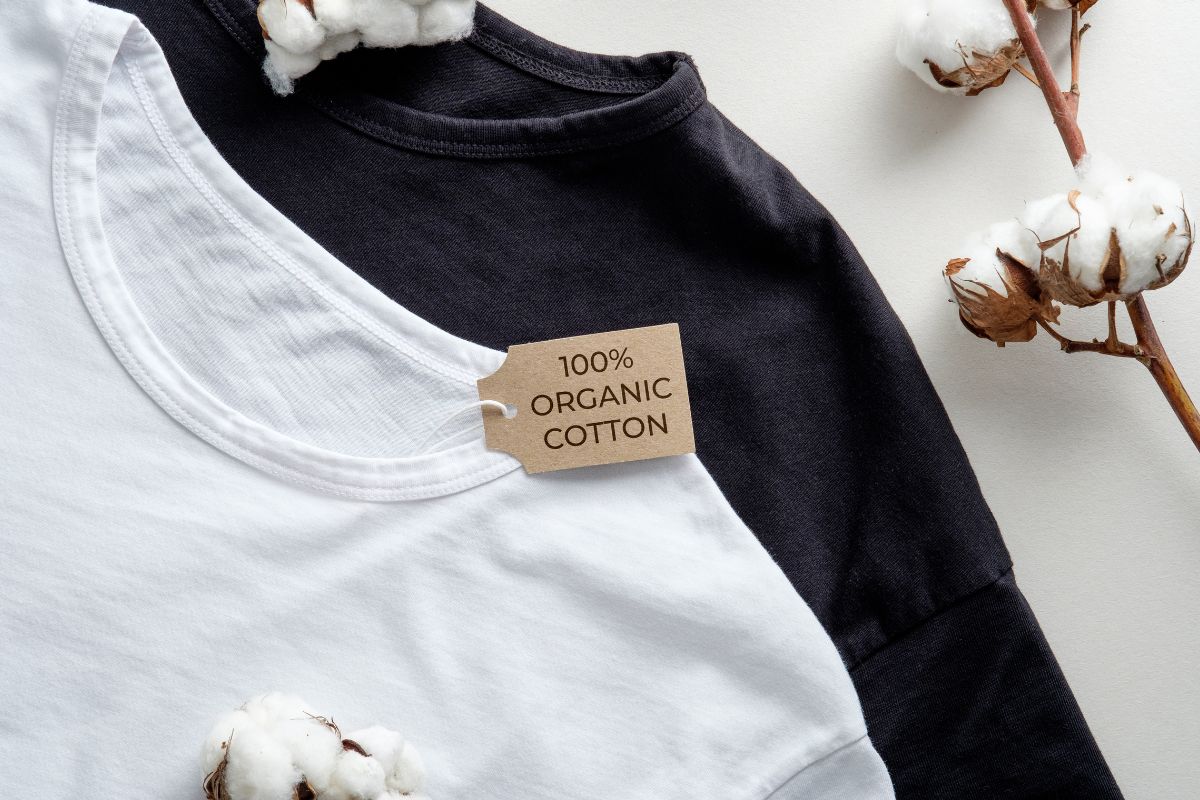
When selecting the best fabric for your t-shirts, considering additional properties beyond softness and durability can greatly enhance comfort and functionality.
Anti-Bacterial and Hypoallergenic Features
Certain fabrics are treated to possess anti-bacterial properties, reducing odor and the likelihood of skin irritation. For instance, a bamboo or organic cotton blend can naturally be hypoallergenic and fend off bacteria. If you have sensitive skin, seek out these options.
Moisture Management
Moisture absorption is critical for keeping you dry and comfortable. Materials like poly-cotton blends offer good moisture management, wicking sweat away from the body. Pure combed and ringspun cotton also provide natural breathability, although it might hold moisture longer than synthetic alternatives.
Fabric Blends and Ratios
The performance of t-shirt fabrics is often defined by their blend ratios. A common blend is 50/50 poly-cotton, balancing the softness of cotton with polyester’s resilience and moisture-wicking capabilities. A higher cotton ratio usually means a softer fabric, while a higher polyester content could extend durability and improve moisture management.
Advances in Fabric Technologies
Innovation in textile manufacturing has led to fabrics with anti-wrinkle technology and enhanced durability without sacrificing softness. For instance, rayon, while soft and fluid, is now being blended with other fibers to improve its longevity and performance as a choice fabric for shirts.
Fabric and Style Trends
Fashion trends influence fabric selection, with styles shifting towards more sustainable and eco-friendly materials. Poplin, for example, is smooth and crisp, often used in high-end t-shirts. Staying aware of fabric developments can help you choose t-shirts that are not only comfortable but also aligned with current style preferences.
Frequently Asked Questions
When selecting the best fabric for your T-shirt, consider factors such as thread type, comfort, durability, softness, and suitability for printing. These aspects ultimately affect both the feel of the shirt on your skin and its overall functionality.
What are the different types of cotton used in T-shirts?
Cotton varieties used in T-shirts include traditional carded cotton, combed cotton, which undergoes additional processing to eliminate shorter strands and impurities, and organic cotton, produced without synthetic chemicals. Pima cotton, known for its long fibers, offers extra softness and durability.
How does fabric type affect the quality of a T-shirt?
The fabric type determines the T-shirt’s breathability, comfort, and appearance. For instance, synthetic materials like polyester may offer moisture-wicking properties, while natural fibers like cotton are better for breathability and softness, enhancing overall comfort.
Which T-shirt material offers the best durability?
Polyester, often blended with cotton, is celebrated for its durability, resilience against wrinkling and shrinkage, and ability to retain color well. Heavyweight cotton also provides considerable longevity if properly cared for.
What is the softest material available for T-shirts?
Modal fabric, derived from beech tree pulp, is frequently touted as one of the softest materials. Fabrics like Pima and Egyptian cotton are also exceptionally soft due to their long fibers, which result in a silky texture.
How does 100% cotton compare to other fabrics for T-shirts in terms of comfort and shrinkage?
100% cotton is highly praised for its comfort due to its softness and breathability. However, it is more prone to shrinkage compared to synthetic fibers or cotton blends, which may combine the benefits of multiple fibers to reduce shrinkage.
What are the most recommended fabrics for T-shirt printing?
For printing purposes, tightly woven, smooth fabrics are recommended. 100% cotton is a popular choice for its ability to absorb ink, while blends of cotton and polyester are also favored for their printability and balance of softness with fewer wrinkles.

